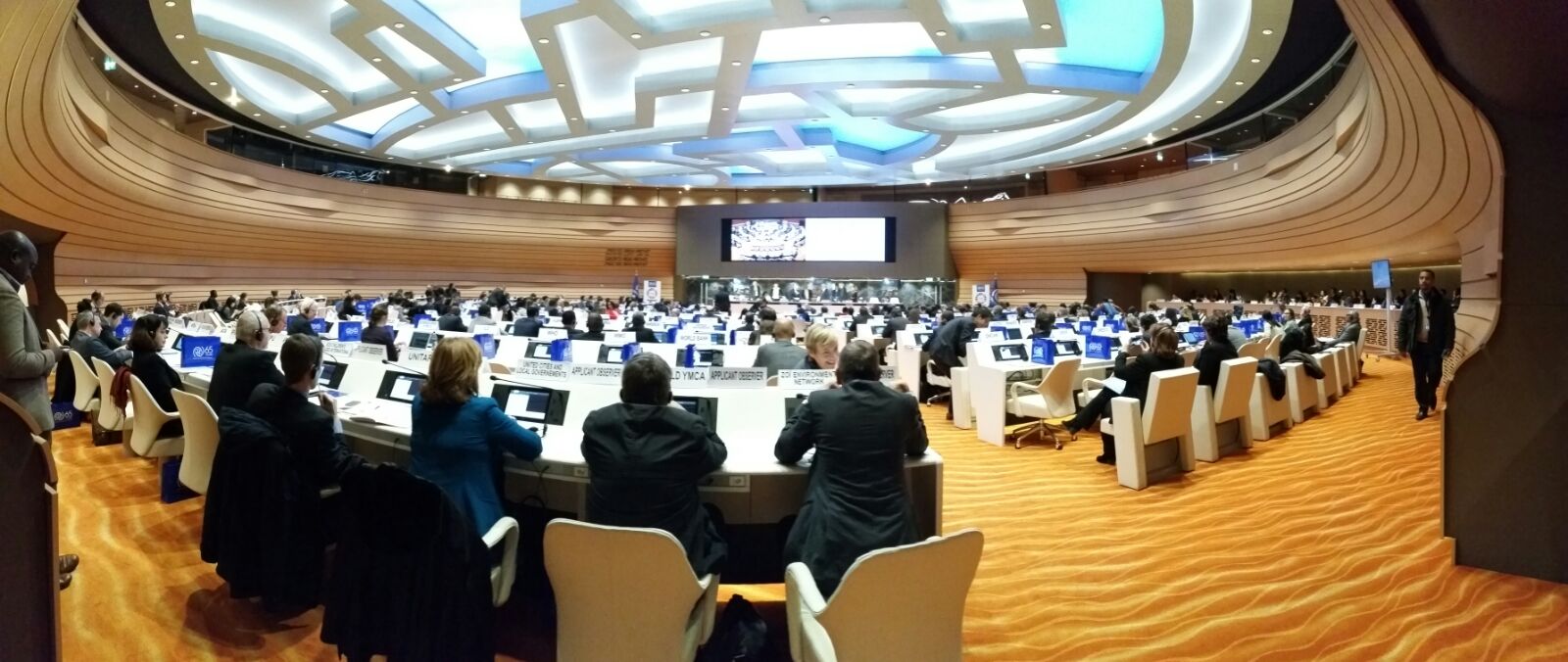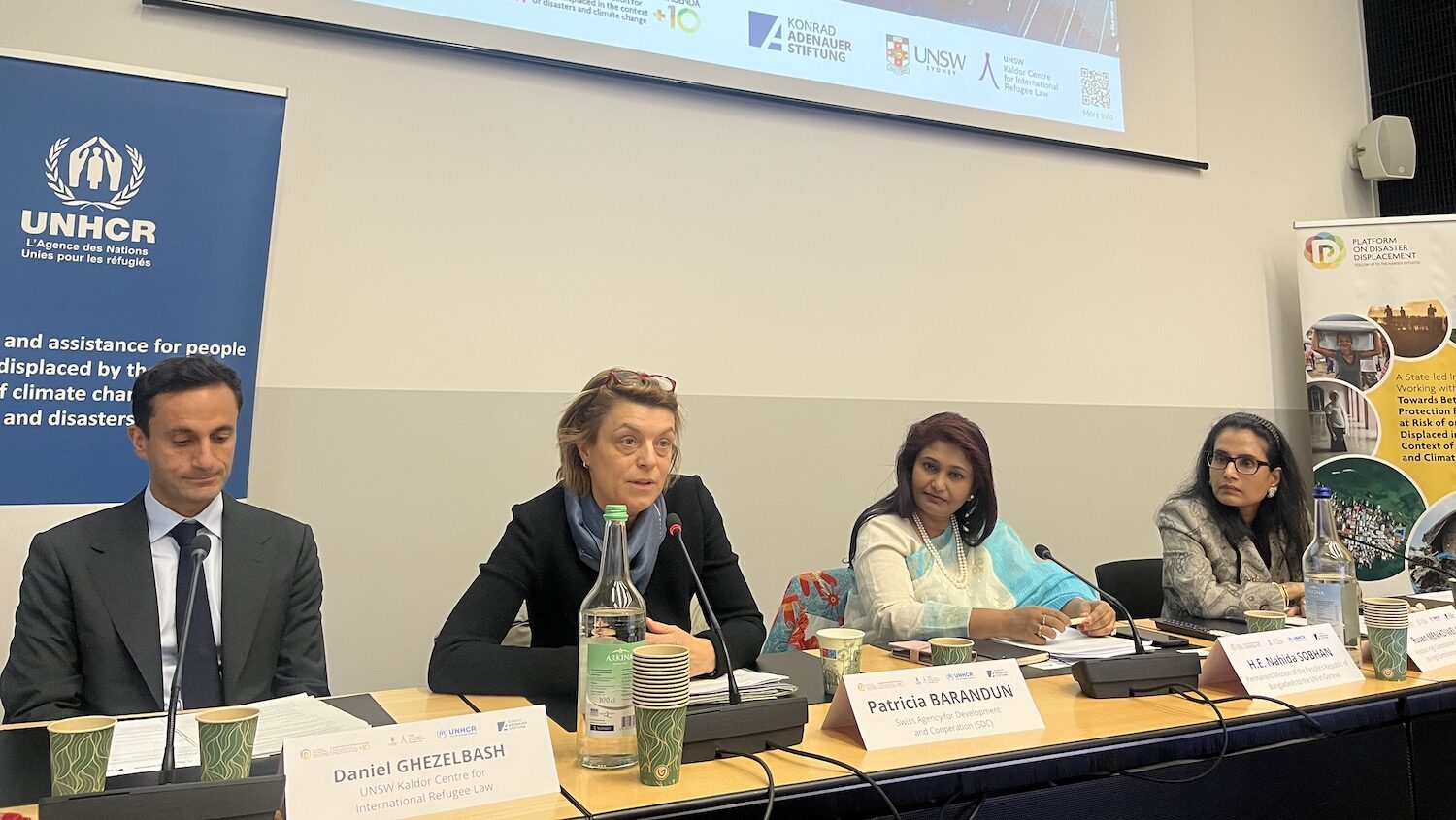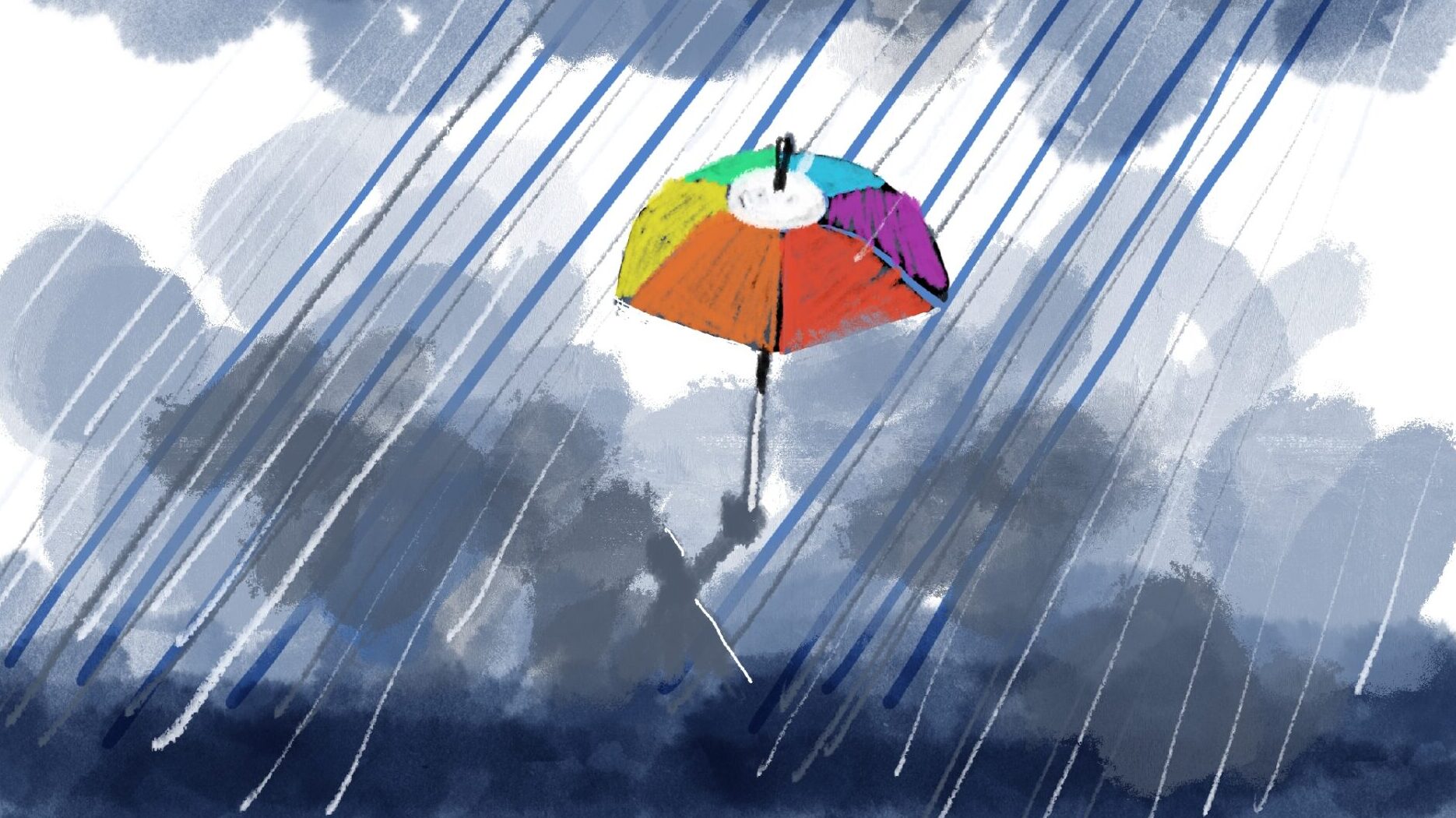IOM Council Item 13: Panel Discussion on Opportunities for Policy Development to Address Climate Migration and Cross-Border Disaster-Displacement

Disasters, climate change and their impact on human mobility at the IOM Council 2016
Disasters, climate change and their impact on human mobility have been highlighted at various occasions during the 107th session of the IOM Council from 5-8 December 2016.
Already in his keynote address on 5 December, H.E. Mr. Peter Thomson, President of the United Nations General Assembly, pointed to the importance of recognizing migration pressures due to climate change. He said “You cannot stay in your traditional homeland if it is turned into a desert and you cannot stay in your traditional rice delta if it is under one meter of water“. He appealed to the international community to prepare better for the fact that some people will have to move.
Mary Robinson, President of the Mary Robinson Foundation, declared “climate displacement” to be “an issue of justice” in her intervention on the panel “Global compact for safe, orderly and regular migration – from process to substance” on 6 December.
In their interventions during the General Debate, many member states pointed to the need to seize the momentum of the development of the Global Compacts and to include the impacts of climate change and disasters on migration and displacement therein. Other member states highlighted the need to link these processes closely and coherently to the Sendai Framework, the Paris Declaration, the SDGs and others relevant processes and declarations.
A dedicated session on disaster displacement
As one concrete example how to address cross-border disaster-displacement, the Platform on Disaster Displacement was presented in a dedicated panel discussion in the afternoon of 6 December. You can watch the full Item 13 session on the IOM YouTube Channel.
The panel with the title Opportunities for policy development to address climate migration and cross-border disaster-displacement was moderated by Amb. Laura Thompson, Deputy Director General, IOM and comprised of the following panelists:
- Amb. Hans-Joachim Daerr, Ambassador and Permanent Representative of the Federal Republic of Germany to the United Nations in Geneva, and Chair of the Platform on Disaster Displacement
- Prof. Walter Kaelin, Adviser to the Chair of the Platform on Disaster Displacement, Professor emeritus of constitutional and international law at the Faculty of Law of the University of Bern
- Prof. Tord Kjellstrom, Professor, Consultant on Environmental and Occupational Health
IOM activities to address the impacts of climate change
Amb. Thompson introduced the topic of the panel discussion. Climate change, environmental degradation and the impacts on migration have been on IOM’s agenda for a long time. In 2015, a division on migration and climate change has been created within the organization. Awareness raising, capacity building and training of government officials was as much part of IOM’s activities in this area as providing assistance to IDPs and other migrants affected by the consequences of disasters, environmental degradation and climate change.
IOM is a member of the PDD’s Advisory Committee and a Standing Invitee in its Steering Group. IOM very much welcomes PDD’s goal to implement the Nansen Initiative’s findings, including the Protection Agenda by focusing on implementation and partnerships.
The panel served three main purposes 1) to highlight key issues arising from the links of human mobility, climate change and disasters and to discuss ways forward, 2) to showcase partnerships to address these challenges, 3) to affirm IOM’s commitment to support PDD’s work.
The priorities of Germany as Chair of the Platform on Disaster Displacement
Amb. Daerr described how the PDD came into being and was launched at the WHS in Istanbul in July 2016, as a follow-up to the Nansen Initiative. Climate change and human mobility were two major challenges of the 21st century and Germany, through its chairmanship of the PDD, sought so prevent, prepare for and address the likely growing challenges of displacement in the context of disasters and climate change.
As future co-chair of the GFMD and together with vice-chair Bangladesh, Germany would make sure that disaster displacement concerns are dealt with in the outcomes of upcoming GFMD meetings, with the support of the 16 member states of the Steering Group from Africa, the Americas, Europe, Asia Pacific including island states plus the European Union.
The German Chairmanship places much emphasis on the practical implementation of the Protection Agenda and the PDD Workplan 2016-2019 including the collection of effective practices, drafting of guidelines, simulation exercises etc.
Amb. Daerr applauded the work of both IOM and UNHCR who, through internal mappings, participation in relevant international processes and dedicated programmes contributed to enhanced coherence among climate change, disaster risk reduction, development and the migration and refugee policies. He called on all states to ensure that the content of the Nansen Initiative Protection Agenda is going to be integrated into the future Compact on Refugees and Compact for Safe, Orderly and Regular Migration.
A film was then screened which shows the constitution of the PDD Advisory Committee at the occasion of a workshop on 13-14 October 2016 in Geneva. It was both filmed and edited on 13 October 2016 and can be viewed here: https://www.youtube.com/watch?v=C0tedIRGz5I
Concrete Opportunities for Policy Development at the global and regional levels
Prof. Walter Kaelin, former envoy of the Nansen Initiative and now Adviser to the Chair of the PDD, in his statement, made a case for the need of policy development to address migration and cross-border disaster displacement in the context of disasters and climate change. IOM had a crucial role to play, in particular with regard to the Global Compact on Safe, Orderly and Regular Migration and through the Regional Consultative Processes on Migration (RCPs) for which it provides the Secretariat.
He explained that the Nansen Initiative had found that in the past decades more than 50 countries have admitted persons displaced across borders in the context of disasters, whether or not weather and climate-related. In the absence of legal norms, such admission was granted on the basis of ad hoc decisions or domestic law. More work needed to be done to encourage states to make these important acts of solidarity less haphazard and more predictable.
RCPs provided important fora at the regional and subregional levels to harmonize approaches to admission, stay and non-return of cross-border disaster-displaced persons. The Regional Conference on Migration (RCM, a.k.a. Puebla Process), covering Central and North America, has taken the lead. Only recently, in November 2016, a “Guide to Effective Practices for RCM Member Countries: Protection of people moving across borders in the context of disasters” had been published. It is based on existing practice and established humanitarian principles and is intended to support a more effective and consistent use of existing law, policy and practice to enhance the response to the needs of cross-border disaster-displaced persons in the region.
Prof. Kaelin expressed his hope that this Guide serves as an inspiration to other regions vulnerable and prone to the devastating effects of disasters and climate change. There were already plans underway to commence, with the support of IOM, a similar process in the context of the South American Regional Conference on Migration (CSM).
Prof. Kaelin concluded by saying that the Global Compact on Migration will provide a unique opportunity to address the issue of migration as a mechanism to cope with climate change. Voluntary migration has the potential to allow people living in areas exposed to adverse impacts of climate change to make their own choices and avoid situations that otherwise may result in a humanitarian crisis and displacement in the future. He said that the Global Compact on Migration would be incomplete and lack in relevance if it failed to provide solid guidance on migration as a tool to adapt and cope with climate change and establish a consensus on how best to facilitate and manage such migration.
Collaboration with the High Commissioner for Refugees and with Scientists
UNHCR intervened from the floor to stress the importance of the international community to tackle climate change and the impacts on human mobility it had. The speaker, Ms. Ellen Hansen, called for collaboration and pointed to the need to seize the political momentum coming from the New York Declaration and the Launch of the Platform on Disaster Displacement.
The last panelist, Prof. Kjellstrom, unveiled his background as medical doctor and mechanical engineer before presenting on technical and health issues as impacts of climate change. He called for the inclusion of scientists and researchers into these important debates. There was still not enough knowledge on the relationship between climate change and human health, animal health and other topics. Links between scientific communities and policy makers were often weak.
Based on his research, he could predict that very soon, large numbers of people will need to move out of their habitual places of residence simply because the temperatures are going to rise to a point where one cannot live, or work to produce food, in certain places anymore. An optimistic estimate was, if the 1.5 degree goal could be kept, that “only” 100 million people were going to be displaced in the coming years due to increasing heat.
Prof. Kjellstrom made a call for work at national level both in small and large countries to see the likely impact of various climate change risks or hazards, extreme weather increasing in frequency and anticipate migration pressures.
Useful Links
Download the Event Flyer (EN)
 Loading...
Loading...
Download the Event Flyer (FR)
 Loading...
Loading...
Download the IOM Council Agenda
 Loading...
Loading...
Read the Protection Agenda
